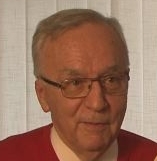Árpád Csurgay
He graduated from the Faculty of Electrical Engineering (VIK) of the Budapest University of Technology (BME) in the weak current department. He defended his doctoral dissertation in 1964, and became a Doctor of Technical Sciences in 1973.
Initially, he worked as a scientific associate at the Telecommunications Research Institute (TKI) on microwave circuits and electromagnetic fields. In 1976, he was appointed scientific director of the Research Institute.
He worked at KFKI in 1980. Between 1981-1985 he led a research group at the Hungarian Academy of Sciences (MTA) SZTAKI.
He taught at BME from 1961, initially as a visiting lecturer. In 1987, he took up his appointment as a university professor at the Department of Theoretical Electricity, where he worked until 2006.
Since 1998, he has been a professor at the Faculty of Information Technology and Bionics of the Pázmány Péter Catholic University; since 2006, he has been a professor emeritus.
He was elected a corresponding member of the Hungarian Academy of Sciences from 1985, and a full member from 1993. He was a member of the Hungarian Academy of Sciences' Automation and Computer Technology Committee, the Informatics Committee, and the Telecommunications Systems Committee. In 1985, he became the Deputy Secretary General of the Hungarian Academy of Sciences for Natural Sciences, and in 1990, he held this position until 1993.
He was a visiting professor at several foreign universities, such as the Technical University of Munich and the University of Notre Dame in Indiana, USA. Between 1999 and 2003, he was the chairman of the board of trustees of the First Central and Eastern European Cooperation Foundation. Member of several Hungarian and international professional organizations. Member of foreign scientific academies (such as the European Academy in London (Academia Europaea); the European Academy of Sciences and Arts in Salzburg); honorary doctor of universities.
His areas of expertise include micro- and nanoelectronics, circuit theory, and information technology. His most significant achievements were in the study of the conditions and limitations of the realizability of information technology tools.
He has written a book with Károlly Simonyi on the physical foundations of information technology. He is the author of several publications on nanotechnology with Wolfgang Porod, one of the inventors of the transistorless quantum cellular automaton, QCA. He is the author or co-author of more than one hundred and ten scientific publications. He holds three patents.
Honors: Academic Award (MTA, 1971); Lóránd Eötvös Award (Minister of Education, 1975); Middle Cross of the Order of Merit of the Republic of Hungary (1993); Széchenyi Award (1998).
Created: 2016.07.07. 18:38
Last modified: 2024.03.05. 20:26

